ABOUT THE 2018 CONFERENCE
Decentralization is a term that is currently en vogue. It is often mentioned in conjunction with block-chain technology and cryptocurrencies. We nevertheless want to focus our attention on the social implications of decentralization processes. What happens to a group or community that moves from a hierachical to a more decentralized working model?
This event is for everyone trying to work in such a way: members of artistic collectives, co-ops, startups, NGOs, companies, museums, activist networks and so on. We have worked with Pixelache for many years to adapt a decentralized model. We came up with some of our own solutions that worked out, but struggled with some basic issues. We have realized that we are not alone with this struggles, and that those challenges are rather common to any group trying to work without a traditional command-and-control structure.
As often, the crucial questions proved increasingly complex as we tried to answer them: How can we be inclusive without spending all the time in meetings? How can we deal with power imbalances? What kind of practical tools (both social and digital) and strategies do these processes require? How can we undo our programming and develop an open, collaborative culture? How do we encourage participation, engagement, and shared responsibility? And if nobody is in charge, where does accountability come from?
This event is about sharing a variety of practices on how to deal with issues of decentralizing and democraticing our ways to organize. We do not intend this to be a one-off event. We want this to start a conversation that will continue in person and online.
The Social Tools 2018 Team
Agnieszka, Ilpo, Oliver and Owen

SYMPOSIUM
Friday 28.9. 15:00-18:15
PAASITORNI / JUHO RISSANEN HALL
The conference will open with a fast paced symposium featuring 8 speakers. They will attempt in short presentations to highlight the most important issues of decentralized organizing. The presentations are buidling a common framework for the more hands-on workshops on the following days.
Speakers include Nati Lombardo & Rich Bartlett (Enspiral/Loomio), Nick Mahony & Sofie Hope (Red Pepper/Cultural Democracy), Oona Frilander (Demos Helsinki), Pedro Reis (Colab/Komuhn), Agnieszka Pokrywka (temporary/kuusipalaa), Maikki Siuko (SITRA/Time-Out) and Karoliina Luoto (Codento).
Paasitorni – the venue for the symposium – is also called Helsinki Workers’ House and has a colorful history related to the workers movement. It was the site of the struggle between early attempts of selforganizing and decentralisation in form of the workers-councils vs. the super centralization forces of the party bureaucracy.
The conference will continue in an informal way at the Juttutupa bar located right in the conference venue at the Pasitorni building. Speakers will be available for questions and discussions.
DATA DETOX BAR
Friday 28.9. 18:00-21:00
Data Detox Kit, is an 8-day tutorial on turning your digitalself into healthier and more in-control. Data Detox Bar is a part of Tactical Tech‘s Glass Room Experience, an opportunity to pick up a free Data Detox Kit and learn more on what data is collected on any person with digital presence and why. It also functions as a social gathering point for the symposium attendants.
The Data Detox Kit will only be available this time, and at the platform of the Kamppi Metro station during the opening of The Glass Room Experience on September 26th, from 17:00 to 19:00, and on September 27th, from 11:00 to 13:00. More info about the exhibition can be found at the bottom of this page.
The Data Detox Bar as a part of The Glass Room Experience is supported by the Goethe-Institut Finnland.
12 PATTERNS OF DECENTRALIZED ORGANIZING
SATURDAY 29.9. 11:00-18:00
If you are trying to organise in a decentralised, collaborative, less-hierarchical team, you are probably asking yourself: How do we include people in decisions without spending so much time in meetings? How do we develop an open, collaborative culture? How do we encourage participation, engagement, and shared responsibility? And if nobody is in charge, where does accountability come from?
You are not the only one. For the last decade, we have been immersed in these challenges, as we co-founded and built Loomio and Enspiral, two pioneering decentralised organisations.
Last year we travelled to 14 countries to share lessons with groups asking the same questions. From the Seoul City Government, to healthcare providers in Brighton, a Dublin food co-op, Berlin tech startups, community organisers from Indianapolis to Buenos Aires… and many more.
Everyone seems to face the same challenges when we try to work without a traditional command-and-control structure. The good news is: you don’t have to reinvent the wheel! Many of us have found solutions, and we are here to guide you along the way.
In this workshop we will share with you 14 Patterns for Decentralised Organising. These patterns are like lenses for understanding the challenges of working with less hierarchy, and the practical responses that have proven to solve them.
Through this full day of participatory learning, you’ll not only gain new understandings, connections and fresh perspectives. You’ll leave the workshop with practical actions that you can start applying right away, to grow a purpose-driven team environment that feels nourishing, engaging, hugely productive and resilient.
The Workshop hosts are Nati Lombardo and Richard D. Bartlett.
You can read a short report about a similar workshop on this blog.
CULTURAL DEMOCRACY
SATURDAY 29.9. 11:00-18:00
We cannot achieve political democracy without achieving cultural democracy at the same time. We have known this for almost fifty years and still the idea of over-turning long-standing cultural hierarchies and achieving democratic control of the means of cultural input seems like an impossible dream. It need not be.
Building on the 1986 Culture & Democracy manifesto, the collectively generated 2017 draft ‘manifesto for a cultural democracy’ begins to set out a contemporary agenda for cultural democracy in our time. This new draft manifesto emerged from participatory sessions organised at The World Transformed festival in September 2017 and the new Movement for Cultural Democracy is now developing to support the collective conversations, alliance building and public action needed to make cultural democracy a reality today.
Nick Mahony and Sophie Hope, researchers, authors, creatives, and activists, will encourage participants to express their own personal experiences, their hopes, and the frustrations they have felt in trying to create spaces for autonomous cultural activity. Beginning with the participants’ own creative lives we will look to what our circumstances have in common and begin the process of creating the tools and techniques we will need to achieve autonomous [or possibly ‘self-managed’] communities.
We will introduce exercises to assist us grow cultural democracy, starting from where we are today. We will also provide the means by which we can continue working together after the workshop ends.
THE ART OF MAKING DECISIONS TOGETHER
(POWERED BY SOCIOCRACY 3.0)
SUNDAY 30.9. 11:00-18:00
There are different ways we learned to make decisions in groups. There is the one with the boss who is forcing decisions because of his power. There is the consensus where everybody must agree and there is the democratic vote where the majority wins. All of these have their pros and cons and are suitable for different situations but when it comes to the challenges we face now they’re all not the best option.
There is a new way on the rise that embraces empowerment and non-violent communication. It is out there with a lot of different names but in its heart it is Consent Decision Making and the perspective that objections are gifts that should be taken care of, regardless who rose them.
One of the most promising and complete sets of patterns is Sociocracy 3.0. (S3 – https://sociocracy30.org ) Guided by S3 and enriched with principles and practices from other frameworks like Holacracy, Dragon Dreaming, Organic Organization and more, I want to invite you to host a new understanding of how you can facilitate and participate as an individual and as a group of people in decision making to follow your call and realize your dreams.
The Workshop is hosted by Sven Latzel.

SPEAKERS 2018
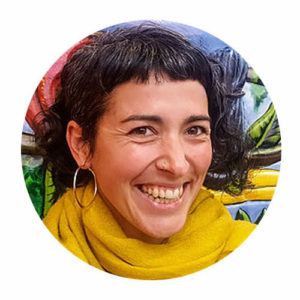
Nati Lombardo
Co-owner of Loomio, a co-operative social enterprise building tools for collective decision-making. Founder or the Newtown Tool Library. Her background is in community development through local action, permaculture, and creative activism.
She helps groups to cultivate collaborative culture through values-driven behaviours. Born in Argentina, living in New Zealand: she’s a bilingual translator that loves to bridge cultures.
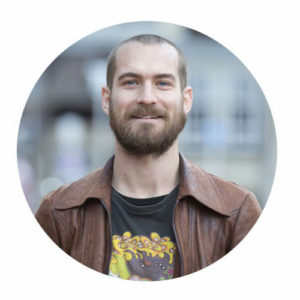
Rich Bartlett
One of the cofounders of Loomio, an open source software tool for collective decision-making. He’s also a Catalyst at Enspiral: a network of self-organising companies who have been working without bosses since 2010. He’s passionate about co-ownership, self-management, collaborative governance, and other ways of sneaking anarchism into respectable places. He writes at medium.com/@richdecibels

Sven Latzel
Sven Latzel is an advanced practitioner of the Sociocracy 3.0 framework. He is facilitating transitions into new ways of working in different organizations. One of them is Sustainable Natives , a association of sustainability consultants, where he is part of the governance circle.
Beside that he is working together with other European facilitators in the newly founded network NXTSTG.ORG. Their mission is to host the evolution of organizations based on the principles and tools of frameworks like Sociocracy, Holacracy, Dragon Dreaming, the Art of Hosting and many more.
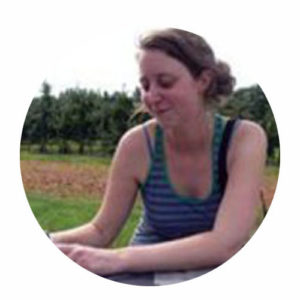
Sophie Hope
Sophie Hope works full-time at Birkbeck, University of London in the Film, Media and Cultural Studies Department on the MA in Arts Management. She likes to explore the multiple sites, methods and legitimacies of practice-based research. She produces works with pluralised perspectives using diverse methods such as performative interviews, audio installations, flow diagrams and communal dinners. Her work is often developed with others through the format of devised workshops exploring subjects such as art and politics. She also writes and facilitates workshops, dealing with issues of public art, the politics of socially engaged art and the ethics of work in the cultural and creative industries.
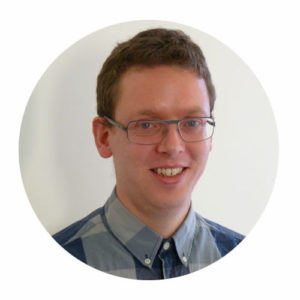
Nick Mahony
Nick Mahony is a researcher and project worker with a long-standing involvement in the politics of public engagement and participatory democracy. He is co-founder of the Movement for Cultural Democracy – a new movement that initially emerged from participatory sessions organised in September 2017 at The World Transformed festival. With the aim of helping to cultivate cultural democracy across contemporary contexts, this movement now continues to convene ‘conversations’, build alliances and collectively elaborate the new manifesto. Nick is also coordinator of the Raymond Williams Foundation, works on political development and outreach for the journal Soundings, is a local Momentum coordinator and is currently Vice Chair of his local constituency Labour Party in North London. Nick’s commitment is to supporting the understanding and negotiation of the complex politics and possibilities of decentralised, public-centric and democratic forms of socio-cultural change today.
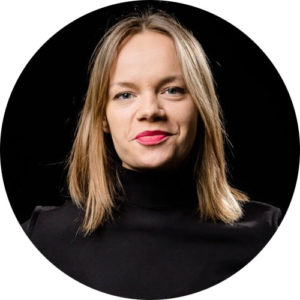
Maikki Siuko
Maikki works at the Timeout dialogue project at Sitra. Timeout is a toolkit and method for initiating and running constructive dialogues in groups and organizations. Timeout seeks to initiate systemic change in Finland towards a more dialogical society through mentoring and training organizations from various fields. Maikki works currently as such a Timeout mentor is actively developing the dialogue toolkit.

Pedro Reis
For the past 10 years Pedro has been researching and developing open-collaboration projects all around the world including self-managed spaces, learning communities, cooperative organizations and design projects. He co-creates Colab – a learning participatory approach to collaboration and Komuhn – a bossless team designing and building ideas towards impacting the world in a positive way. Part of this team founded the first self-managed third place in Portugal which became a case-study for many organizations interested in new ways of organizing and co-creating, and are now starting a new participatory design project in Peniche, Portugal – a small seaside community, exploring future-living with The Great Good Place.
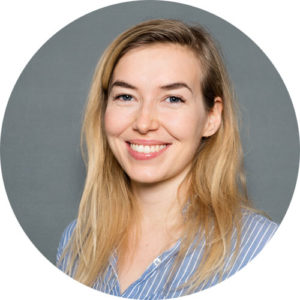
Oona Frilander
Oona works as a consultant at Demos Helsinki, a think tank and consultancy that aims to create systemic change towards a sustainable and democratic society. Transparency, non-hierarchical structure, self-organizing teams and shared agenda-setting are at the core of Demos’ organization. Demos Helsinki works around themes such as the future of work and new ways of organizing with diverse partners, ranging from ministries and corporations to researchers and NGOs.

Karoliina Luoto
Karoliina Luoto is a lean agile consultant with a burning heart for better worklife and happier people amongst both customers and empolyees. She is also culture circle coordinator of Codento, a software and transformation company that has used Sociocracy 3.0 for shared decision making for 1,5 years. Codento has especially benefited for S3 usage in better distribution of influence, mutual care for developing the company and, as a side effect, easier recruiting and growth.
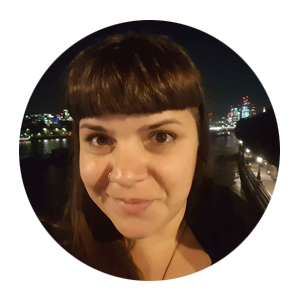
Bec Slip
Bec works at Tactical Tech as a project coordinator in the Glass Room Experience project. Tactical Tech is a Berlin based non-profit organisation working at the intersection of technology, human rights and civil liberties. Before moving to Berlin, Bec worked in Melbourne, Australia assisting refugees, asylum seekers and immigration detainees.
The Glass Room Experience during Social Tools conference is supported by the Goethe-Institut Finnland.
Pixelache / The Team
Pixelache is the main organizer of the event. It is a transdisciplinary platform for emerging art, design, research and activism.
The organizing team are Pixelache members Aga, Ilpo, Oliver and Owen:
Agnieszka Pokrywka is working in the spirit of decentralization, collective participation, and fermentation. These themes emerge in her work as a cultural organiser, where she re-rethinks standardised structures of creative production. She also applies these interests in multimedia and non-linear documentary storytelling. Occasionally she might also appear as a graphic and motion graphic designer.
Ilpo Heikkinen is a multitool of cultural work. He works with performing arts, cultural activism, music and tech with ethos of commons, participation and open source. To put it broadly.
Oliver Kochta-Kalleinen is a visual artist based in Helsinki working with video and performance often using a participatory approach. He directed several movies from short-film to documentary. Oliver is the co- founder of complaintschoir.org, YKON and speechkaraoke.org. He gained experience in dynamic facilitation techniques in order to design and host workshops, un-conferences or group meetings. He is a supporter of the Open Knowledge movement.
Owen Kelly is a writer, lecturer and digital artist. He is the author of four books including Community, Art & the State and a former member of Negrava, a tape band who were big on American college radio for almost six weeks in the summer of 1987. He is a former board member of Pixelache and lectures in online media at Arcada, a university of applied science. You can find writing and photographs at owenkelly.net and digital versions of his published books at dibdibdob.com.